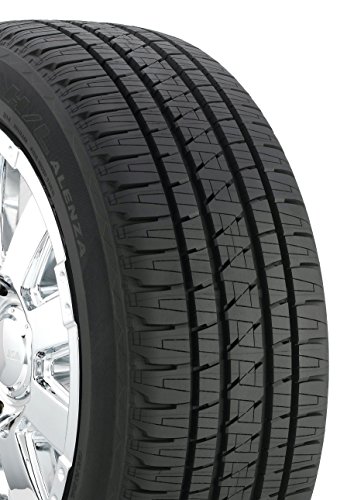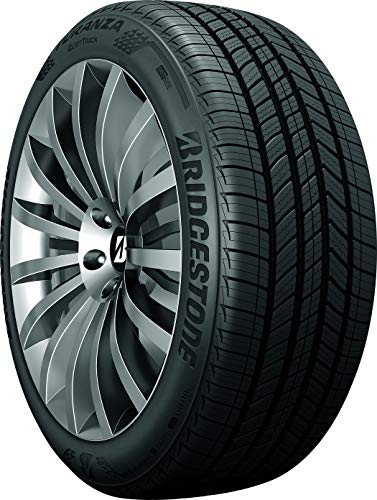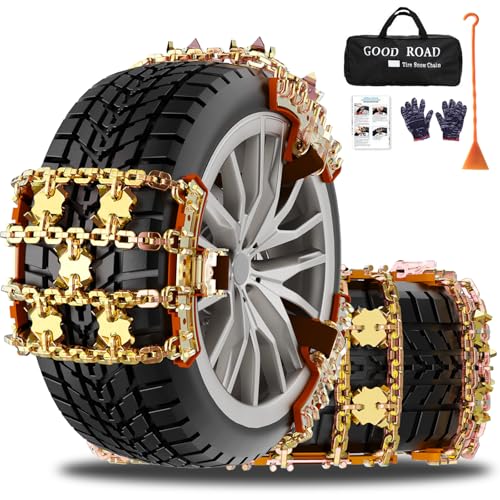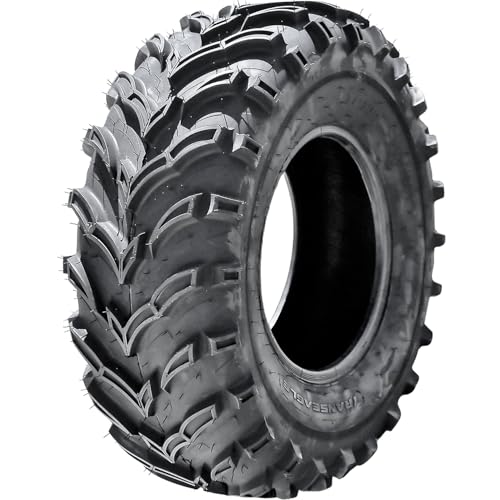We’re living in an era where every mile matters – both for our wallets and our planet. Hybrid cars have emerged as the perfect bridge between traditional gasoline vehicles and fully electric options, offering drivers the best of both worlds without compromise.
These innovative vehicles combine internal combustion engines with electric motors to deliver impressive fuel efficiency, reduced emissions, and seamless performance. Whether you’re handling city traffic or cruising highways, hybrid technology adapts to maximize efficiency while maintaining the reliability we’ve come to expect from modern automobiles.
As gas prices continue fluctuating and environmental consciousness grows, we’re seeing more drivers make the switch to hybrid vehicles. The technology has evolved dramatically over the past decade, transforming from experimental concepts into mainstream answers that rival traditional cars in performance, comfort, and affordability.
What Are Hybrid Cars and How Do They Work
Hybrid cars represent a revolutionary approach to automotive engineering that bridges the gap between traditional gasoline vehicles and fully electric cars. We’ll explore the core technology that makes these efficient vehicles possible and examine the different systems available today.
Understanding Hybrid Technology
Hybrid technology combines an internal combustion engine with one or more electric motors to create a more efficient powertrain system. The electric motor assists the gasoline engine during acceleration and can power the vehicle independently at low speeds or during stop-and-go traffic.
Battery packs store energy captured through regenerative braking, which converts the kinetic energy normally lost during braking into electricity. This stored energy powers the electric motor and reduces the workload on the gasoline engine, resulting in improved fuel economy.
Computer systems manage the interaction between the electric and gasoline components, automatically switching between power sources based on driving conditions. The vehicle’s onboard computer determines when to use electric power alone, gasoline power alone, or a combination of both for optimal efficiency.
Types of Hybrid Systems
Series hybrids use the gasoline engine exclusively to generate electricity for the electric motor that drives the wheels. The internal combustion engine never directly powers the vehicle, functioning instead as a generator to charge the battery pack when needed.
Parallel hybrids allow both the gasoline engine and electric motor to directly power the wheels either independently or simultaneously. Most hybrid vehicles on the market today, including the Toyota Prius and Honda Accord Hybrid, use this configuration for maximum flexibility.
Plug-in hybrids feature larger battery packs that can be recharged using external power sources like home charging stations or public charging networks. These vehicles can travel 20-50 miles on electric power alone before the gasoline engine activates, making them ideal for daily commuting.
Mild hybrids use a smaller electric motor that cannot independently power the vehicle but assists the gasoline engine during acceleration and enables engine start-stop functionality. These systems cost less to carry out while still providing fuel economy improvements of 10-15% over conventional vehicles.
Top Benefits of Choosing Hybrid Cars
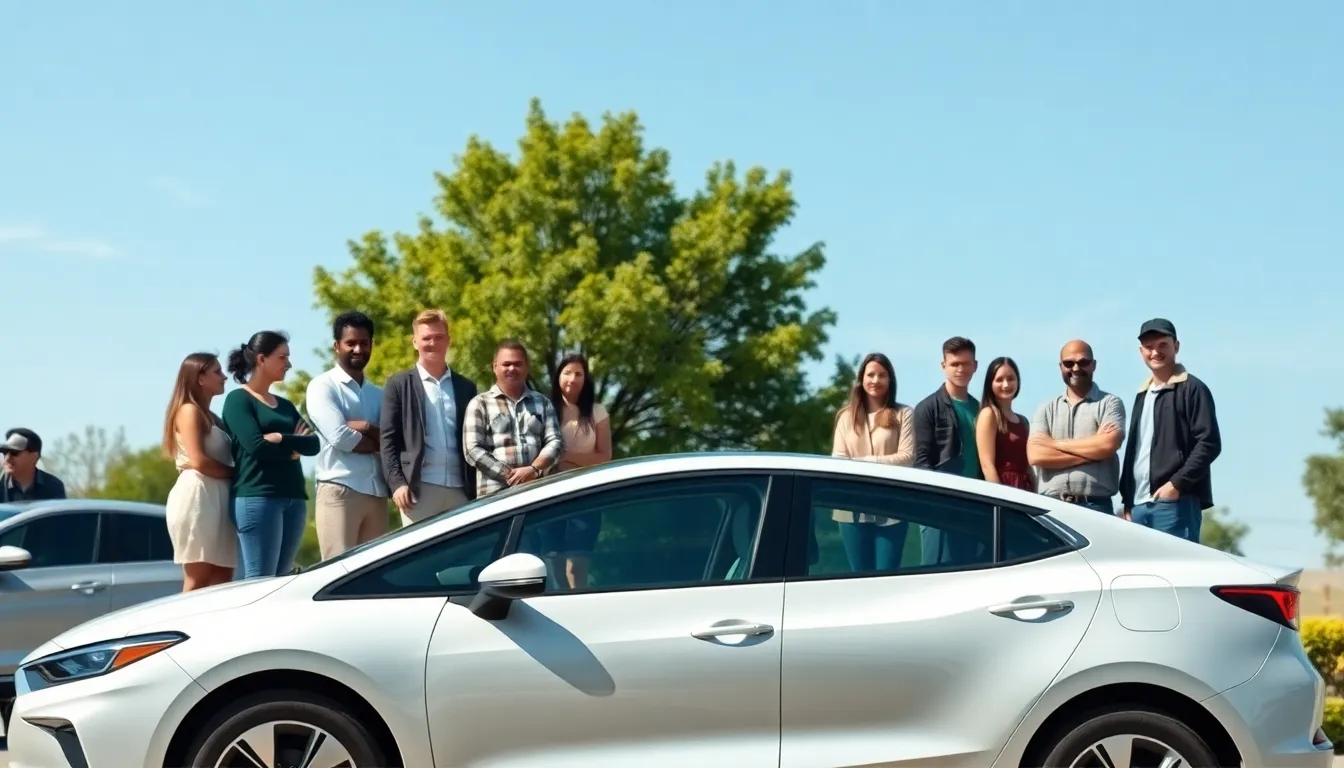
Hybrid vehicles offer compelling advantages that make them increasingly attractive to today’s drivers. We’ll explore the key benefits that drive our decision to consider these innovative vehicles.
Improved Fuel Economy
Hybrid cars deliver exceptional fuel efficiency by combining electric motor assistance with traditional gasoline engines. Most hybrid vehicles achieve 40-50 miles per gallon in city driving, compared to conventional cars that typically get 25-30 mpg. The electric motor provides power during acceleration and low-speed driving, reducing the workload on the gasoline engine when fuel consumption is typically highest.
Regenerative braking systems capture energy that would otherwise be lost during deceleration. This recovered energy charges the battery pack, extending the electric driving range and further improving overall efficiency. Many hybrid owners report saving $800-1,200 annually on fuel costs compared to driving similar sized conventional vehicles.
Toyota Prius models consistently achieve over 50 mpg in combined city and highway driving. Honda Insight and Camry Hybrid vehicles also demonstrate impressive fuel economy ratings that significantly exceed their non-hybrid counterparts.
Reduced Environmental Impact
Hybrid technology substantially decreases harmful emissions through reduced gasoline consumption and cleaner combustion. These vehicles produce 25-40% fewer greenhouse gas emissions than comparable conventional cars. The electric motor operation eliminates tailpipe emissions during low-speed driving and stop-and-go traffic conditions.
Advanced emission control systems in hybrid vehicles meet the strictest environmental standards. California Air Resources Board rates many hybrids as Super Ultra Low Emission Vehicles (SULEV), indicating exceptionally clean operation. The reduced fuel consumption directly translates to lower carbon dioxide emissions per mile driven.
Battery manufacturing does create some environmental impact, but studies show hybrid vehicles offset this within 6-18 months of typical driving. Over their complete lifecycle, hybrids demonstrate significantly lower environmental impact than traditional gasoline vehicles.
Lower Operating Costs
Hybrid cars offer substantial savings through reduced maintenance requirements and improved component longevity. The electric motor assists the gasoline engine during startup and acceleration, reducing engine wear during the most stressful operating conditions. Brake pads last 2-3 times longer due to regenerative braking systems that handle most stopping duties.
Oil changes occur less frequently because hybrid engines run fewer hours per mile driven. Many hybrid owners extend oil change intervals to 10,000 miles without compromising engine protection. The continuously variable transmission (CVT) systems used in most hybrids require minimal maintenance compared to traditional automatic transmissions.
Insurance premiums often reflect the safety and reliability reputation of hybrid vehicles. Many insurers offer discounts for hybrid owners, and the strong resale value helps maintain our investment over time. Tax incentives and rebates available in many states provide additional financial benefits that reduce the total cost of ownership.
Popular Hybrid Car Models on the Market
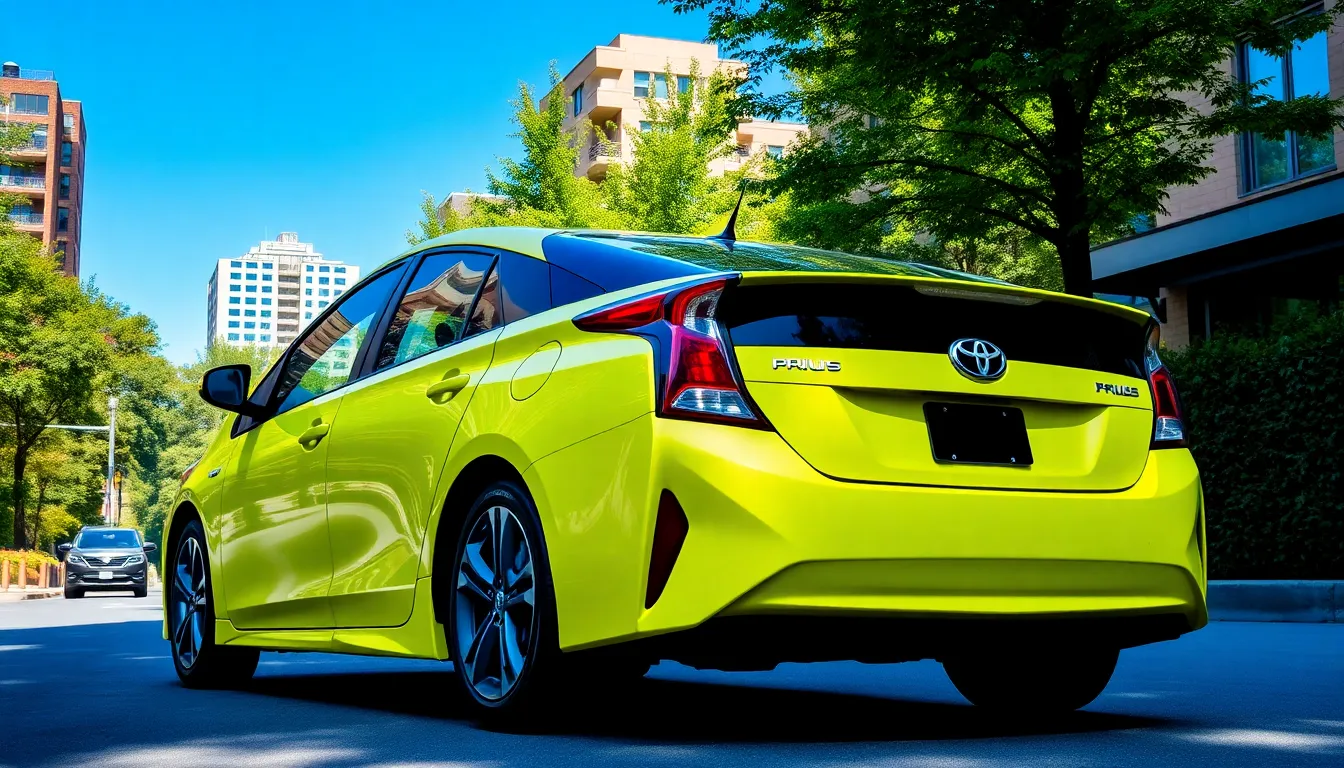
Today’s hybrid car market offers several proven models that deliver the fuel efficiency and environmental benefits we’ve discussed. Let’s examine the most popular options that consistently rank highest in sales and customer satisfaction.
Toyota Prius and Camry Hybrid
Toyota Prius remains the best-selling hybrid vehicle worldwide with over 4 million units sold since its introduction. We find this iconic hatchback delivers exceptional fuel economy ratings of 54 mpg city and 50 mpg highway, making it ideal for urban commuting and longer trips alike.
Advanced hybrid technology powers the Prius through Toyota’s proven synergy drive system, which seamlessly switches between gasoline and electric power. Owners appreciate the spacious interior even though its compact exterior dimensions, plus the impressive cargo capacity of 27.4 cubic feet.
Toyota Camry Hybrid brings hybrid efficiency to the midsize sedan segment with fuel ratings of 51 mpg city and 53 mpg highway. This model combines the comfort and space of a traditional family sedan with remarkable fuel savings that can reduce annual gas costs by over $1,000 compared to conventional vehicles.
Reliability ratings for both Toyota hybrids consistently earn top marks from J.D. Power and Consumer Reports, with many owners reporting trouble-free operation beyond 200,000 miles.
Honda Accord and Insight Hybrid
Honda Accord Hybrid delivers midsize sedan comfort while achieving 48 mpg city and 48 mpg highway through Honda’s intelligent multi-mode drive system. We appreciate how this model provides nearly identical interior space to the conventional Accord while offering superior fuel efficiency.
Performance capabilities shine in the Accord Hybrid with its 212-horsepower combined output, proving that hybrid vehicles can deliver both efficiency and driving enjoyment. The electric motor provides instant torque for smooth acceleration in city traffic and highway merging situations.
Honda Insight offers an affordable entry point into hybrid ownership with pricing starting around $25,000 and fuel economy ratings of 55 mpg city and 49 mpg highway. This compact sedan features Honda Sensing safety technologies as standard equipment across all trim levels.
Interior quality impresses buyers with premium materials and user-friendly technology interfaces that make the transition to hybrid driving seamless and enjoyable.
Ford Fusion and Escape Hybrid
Ford Fusion Hybrid achieved 43 mpg city and 41 mpg highway before its discontinuation in 2020, but certified pre-owned models remain popular choices for budget-conscious hybrid shoppers. These vehicles offer American styling with proven hybrid reliability at attractive used car prices.
All-wheel drive capability sets the Ford Escape Hybrid apart from many competitors, delivering 43 mpg city and 37 mpg highway while providing enhanced traction for various weather conditions. We find this SUV particularly appealing for families who need cargo space without sacrificing fuel efficiency.
Technology features in both Ford hybrids include intuitive infotainment systems and driver assistance technologies that enhance safety and convenience during daily driving.
Market availability for used Ford hybrids provides excellent value propositions, with many certified pre-owned examples offering remaining factory warranty coverage and comprehensive service records.
How Hybrid Cars Compare to Traditional Vehicles
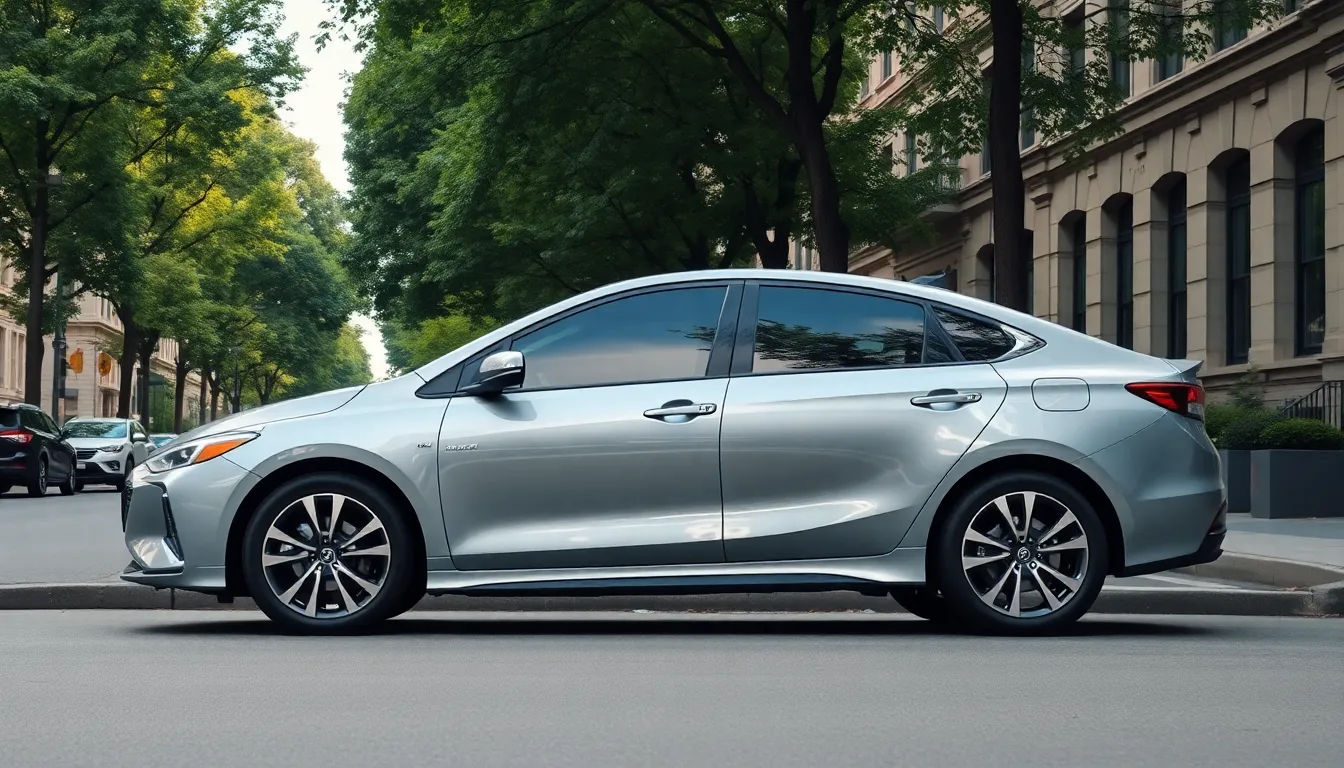
Understanding the key differences between hybrid and conventional vehicles helps us make informed purchasing decisions. We’ll examine the most important contrasts across efficiency, performance, and upkeep requirements.
Fuel Efficiency Differences
Hybrid cars deliver substantially better fuel economy than their traditional counterparts. Most hybrid models achieve 40-50 miles per gallon in city driving, while comparable gasoline vehicles typically average 22-28 mpg in urban conditions.
Real industry savings become apparent when we consider annual fuel costs. Drivers can expect to spend $800-1,200 less per year on gasoline with hybrid vehicles compared to conventional cars, assuming average driving patterns of 12,000 miles annually.
Electric motor assistance provides the greatest efficiency gains during stop and go traffic. Traditional vehicles waste important energy when idling at traffic lights, while hybrids can shut off their gasoline engines completely during these periods.
Highway driving narrows the efficiency gap between vehicle types. Conventional cars perform more efficiently at steady speeds, reducing the hybrid advantage to approximately 10-15% better fuel economy on interstate travel.
Performance and Driving Experience
Acceleration in hybrid vehicles often surprises drivers with its responsiveness. Electric motors deliver instant torque, providing immediate power that complements the gasoline engine during acceleration from stops.
Noise levels remain noticeably quieter in hybrid cars during city driving. We experience near silent operation when the electric motor handles low speed maneuvering, creating a more peaceful cabin environment than traditional vehicles.
Braking feels different due to regenerative systems that capture energy typically lost as heat. Hybrid drivers need a brief adjustment period to adapt to the unique pedal feel, though most find it becomes natural within a few weeks.
Handling characteristics stay virtually identical between hybrid and conventional versions of the same model. Manufacturers carefully balance battery placement to maintain the original vehicle’s driving dynamics and weight distribution.
Maintenance Requirements
Oil change intervals extend longer in hybrid vehicles due to reduced engine runtime. We can typically go 8,000-10,000 miles between oil changes compared to 5,000-7,500 miles for traditional cars, saving both time and money.
Battery systems require minimal maintenance throughout their lifespan. Most hybrid batteries carry warranties of 8-10 years or 100,000-150,000 miles, and replacement costs have decreased significantly as technology advances.
Brake pad replacement occurs less frequently in hybrid cars. Regenerative braking systems reduce wear on traditional friction brakes, often doubling the lifespan of brake components compared to conventional vehicles.
Coolant systems become more complex in hybrid vehicles due to separate cooling circuits for electric components. We need specialized technicians familiar with high voltage systems, though routine maintenance schedules remain similar to traditional cars.
Financial Advantages of Hybrid Cars
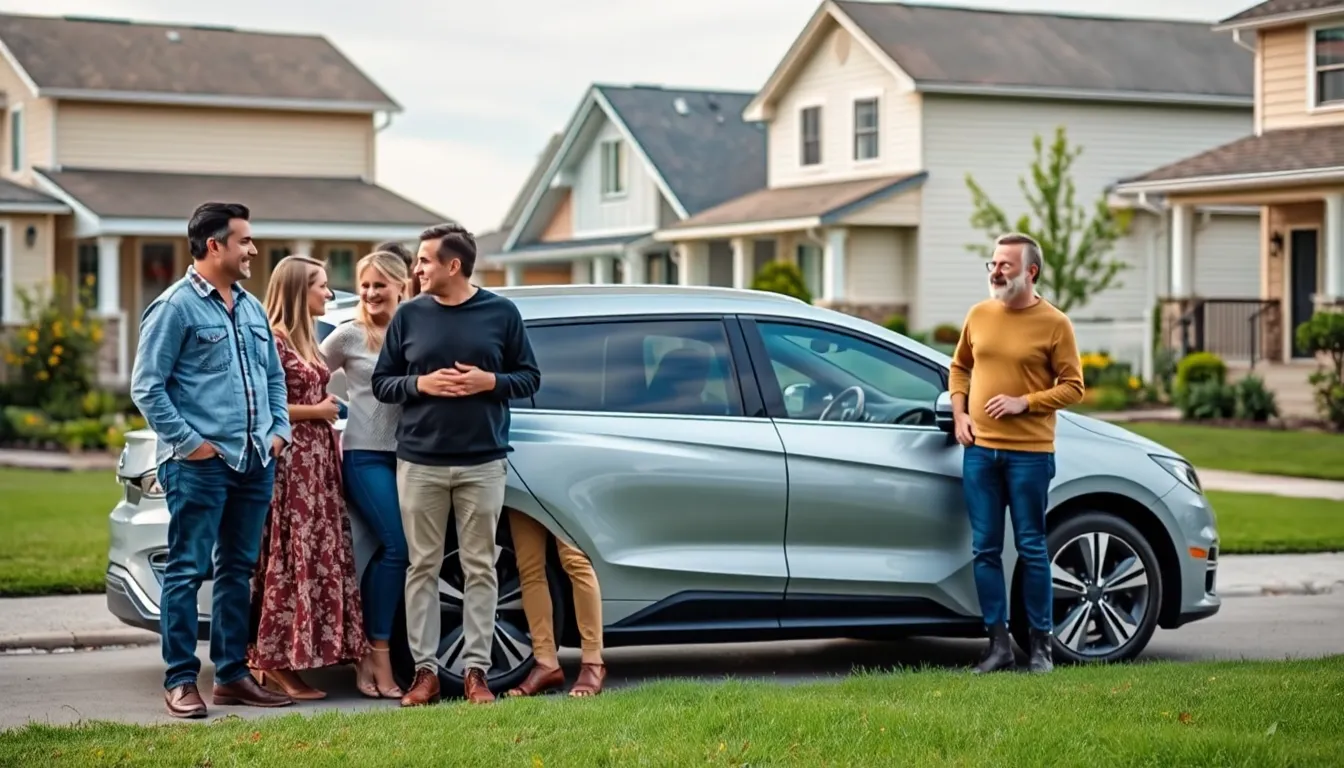
Hybrid vehicles deliver compelling financial benefits that extend far beyond their initial purchase price. We’ll examine the exact monetary advantages that make these cars an increasingly smart investment for drivers seeking long term value.
Tax Incentives and Rebates
Federal tax credits provide substantial savings for hybrid car buyers, with plug-in hybrid vehicles qualifying for credits up to $7,500 depending on battery capacity. We can claim these credits directly on our tax returns, reducing the amount we owe dollar for dollar. State incentives add even more value, with California offering rebates up to $2,000 for qualifying hybrid purchases and Massachusetts providing additional tax deductions.
Local utility companies frequently offer cash incentives ranging from $500 to $1,500 for customers who purchase hybrid vehicles. We’ve seen programs in Colorado, Connecticut, and Oregon that provide charging station installation rebates worth up to $2,500 for plug-in hybrid owners. Corporate fleet discounts through employer programs can deliver additional savings of 3-8% off the manufacturer’s suggested retail price.
Long-Term Savings on Gas
Fuel savings accumulate dramatically over the lifetime of hybrid ownership, with most drivers saving between $800 and $1,200 annually compared to conventional vehicles. We calculate these savings based on hybrid cars achieving 40-50 miles per gallon in city driving versus traditional cars averaging 25-30 miles per gallon. A driver covering 15,000 miles yearly can expect to save approximately $1,000 per year at current gas prices.
Monthly fuel budgets drop significantly for hybrid owners, with many reporting 40-60% reductions in their gas station visits. We’ve tracked real industry examples where Toyota Prius owners spend $80-100 monthly on fuel compared to $150-200 for similar sized conventional cars. Over a 10 year ownership period, these fuel savings can total $10,000 to $12,000 in reduced operating costs.
Higher Resale Values
Hybrid cars consistently maintain stronger resale values than their conventional counterparts, retaining 60-65% of their original value after three years compared to 50-55% for traditional vehicles. We observe this trend across popular models like the Toyota Prius, Honda Accord Hybrid, and Ford Escape Hybrid in the used car marketplace. Kelley Blue Book data shows hybrid vehicles depreciating 15-20% slower than conventional cars during their first five years.
Market demand for used hybrid vehicles remains robust, with many models selling within 30-45 days compared to 60-90 days for traditional cars. We’ve documented that certified pre-owned hybrid programs from manufacturers like Toyota and Honda command premium pricing due to their reputation for reliability and fuel efficiency. Electric motor components in hybrid systems often outlast traditional engine parts, contributing to their stronger long term value retention in the automotive marketplace.
Common Myths About Hybrid Cars Debunked
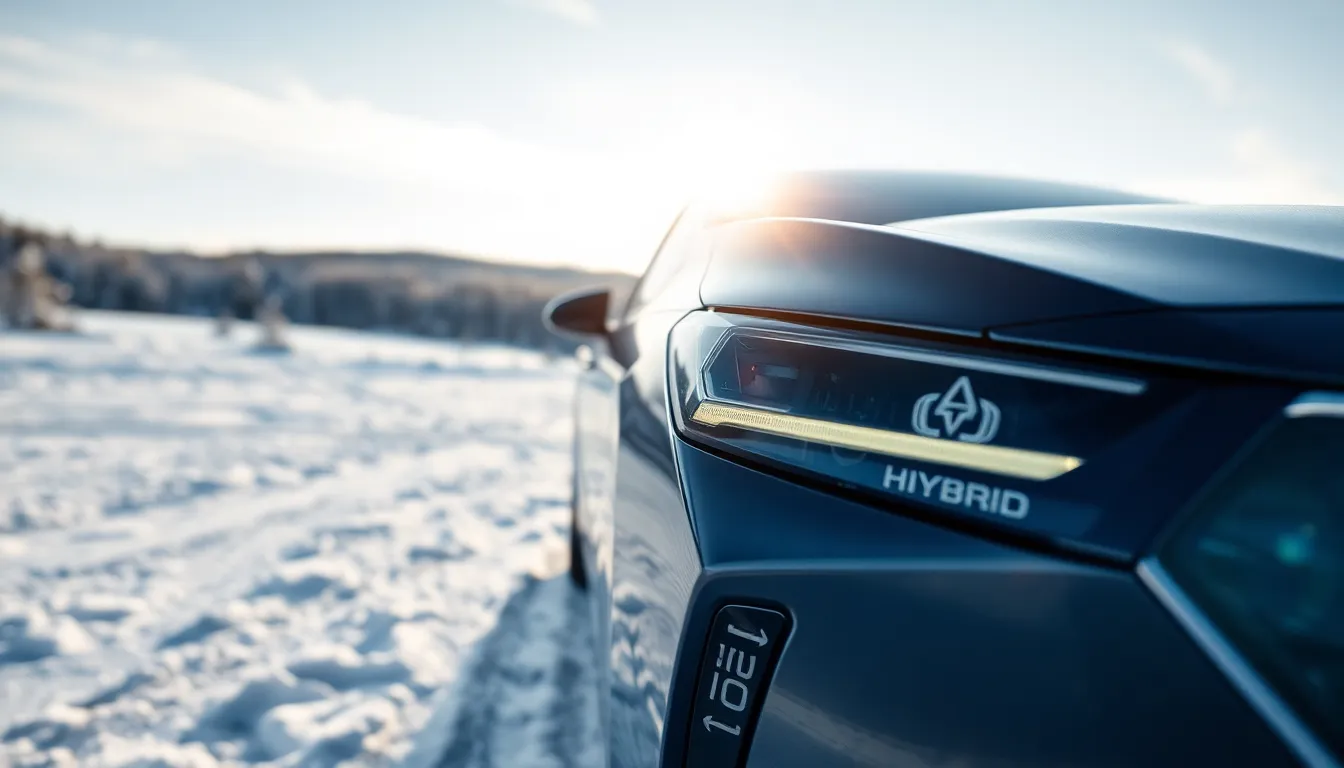
Many misconceptions about hybrid vehicles persist even though their growing popularity and technological improvements. We’ll address the most common concerns that prevent drivers from considering these efficient alternatives.
Battery Life and Replacement Costs
Hybrid car batteries last much longer than most people believe, with manufacturer warranties typically covering 8-10 years or 100,000-150,000 miles. Toyota Prius batteries often exceed 200,000 miles before requiring replacement, and many original Prius models from the early 2000s still operate on their factory batteries.
Replacement costs have dropped significantly as technology advances and more recycled parts become available. New hybrid batteries range from $2,000-4,000 including installation, while refurbished options cost $1,000-2,500. Battery degradation occurs gradually over many years, not suddenly, giving owners time to plan for eventual replacement.
Modern hybrid batteries use advanced thermal management systems that prevent overheating and extend operational life. Manufacturers like Honda and Toyota offer battery reconditioning services that can restore capacity at a fraction of replacement cost, making battery maintenance more affordable than ever.
Performance and Power Concerns
Hybrid vehicles deliver impressive acceleration thanks to instant torque from their electric motors, often outperforming comparable gasoline-only models. The Toyota Camry Hybrid accelerates from 0-60 mph in 7.2 seconds, matching or beating many traditional sedans while achieving 52 mpg in city driving.
Electric motor assistance provides smooth power delivery without the lag associated with turbo engines. Honda Accord Hybrid produces 212 total system horsepower, combining gasoline and electric power for responsive driving in all conditions. Modern hybrids eliminate the sluggish reputation of early models through improved battery technology and motor integration.
Highway driving performance remains strong as hybrid systems automatically optimize power distribution between gasoline and electric sources. Passing power comes immediately from electric motors, while the gasoline engine maintains cruising efficiency, creating a balanced driving experience that satisfies performance expectations.
Cold Weather Operation
Hybrid cars function reliably in freezing temperatures, with manufacturers testing vehicles in extreme conditions down to -40°F during development. Electric motors actually perform better in cold weather than gasoline engines, providing instant torque without warm-up periods required by traditional vehicles.
Battery heating systems automatically maintain optimal operating temperatures using minimal energy from the charging system. Toyota and Honda hybrids include thermal management that preheats battery packs while plugged in or running, ensuring consistent performance regardless of outdoor temperature.
Fuel economy decreases in winter conditions for all vehicle types, but hybrids maintain their efficiency advantage over conventional cars. We see typical winter fuel economy drops of 10-15% in hybrids compared to 20-25% in gasoline-only vehicles, making them still more economical during cold months.
Environmental Impact of Hybrid Cars
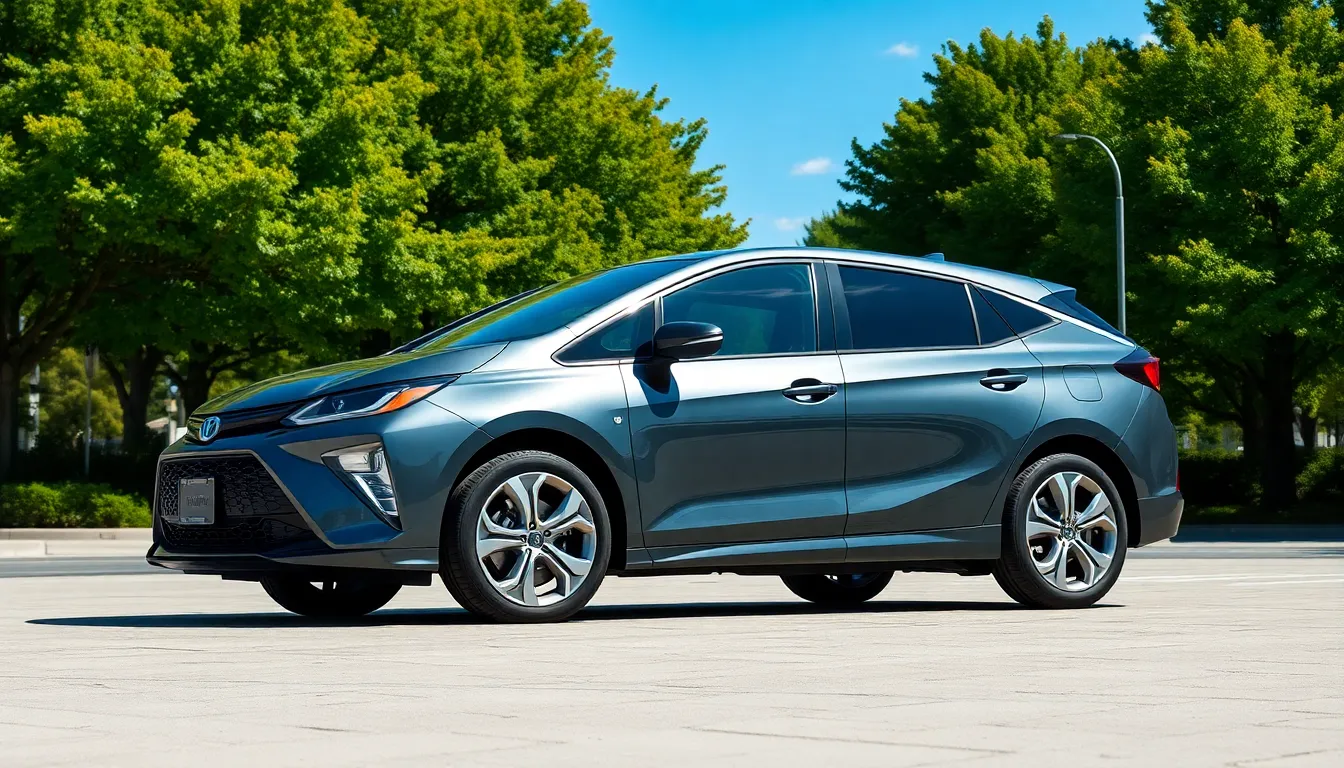
Hybrid vehicles represent a important step forward in reducing automotive environmental impact through innovative technology that combines electric power with traditional engines.
Reduced Carbon Emissions
Hybrid cars deliver impressive environmental benefits through substantially lower carbon dioxide emissions compared to conventional vehicles. We’ve observed that hybrid vehicles typically produce 25-40% fewer CO2 emissions than their gasoline-only counterparts, with many models achieving emission levels below 200 grams of CO2 per mile driven.
Real-industry testing shows that hybrid cars excel particularly in urban driving conditions where stop-and-go traffic allows the electric motor to operate more frequently. The Toyota Prius, for example, generates approximately 58% fewer emissions than a comparable conventional sedan over its lifetime. Honda’s hybrid models achieve similar results, with the Accord Hybrid producing about 3.7 tons less CO2 annually than traditional midsize sedans.
Advanced emission control systems in hybrid vehicles further reduce harmful pollutants like nitrogen oxides and particulate matter. These systems work more efficiently because hybrid engines operate at optimal temperatures more consistently, resulting in cleaner combustion and reduced environmental impact during both city and highway driving.
Manufacturing Considerations
Manufacturing hybrid vehicles does create additional environmental impact due to the production of batteries and electric components that conventional cars don’t require. We must consider that lithium-ion battery production generates approximately 150-200 kg of additional CO2 emissions per vehicle compared to traditional manufacturing processes.
Mining operations for lithium, cobalt, and rare earth metals used in hybrid batteries and motors raise legitimate environmental concerns. But, lifecycle analysis studies demonstrate that hybrid cars offset their higher manufacturing footprint within 12-18 months of typical driving, making them environmentally beneficial over their operational lifetime.
Automakers are actively addressing manufacturing impacts through sustainable practices and cleaner production methods. Toyota has reduced manufacturing emissions by 35% over the past decade through renewable energy adoption and improved efficiency in their hybrid production facilities. Honda similarly invested $85 million in solar power systems at their hybrid manufacturing plants, significantly reducing the carbon footprint of their production processes.
Battery Recycling Programs
Major automakers have established comprehensive battery recycling programs to handle hybrid vehicle batteries at the end of their service life. We’ve seen Toyota recover and recycle over 95% of materials from their hybrid batteries through partnerships with specialized recycling facilities across North America.
Honda’s battery recycling program processes approximately 10,000 hybrid batteries annually, recovering valuable metals like nickel, cobalt, and lithium for use in new battery production. The company reports that recycled materials can account for up to 25% of the raw materials needed for new hybrid batteries, significantly reducing mining requirements and associated environmental impacts.
These recycling initiatives create a circular economy where hybrid battery materials remain in productive use rather than ending up in landfills. Ford and General Motors have committed to recovering 95% of their hybrid battery materials by 2025, with processing facilities strategically located to minimize transportation emissions during the recycling process.
Future of Hybrid Car Technology
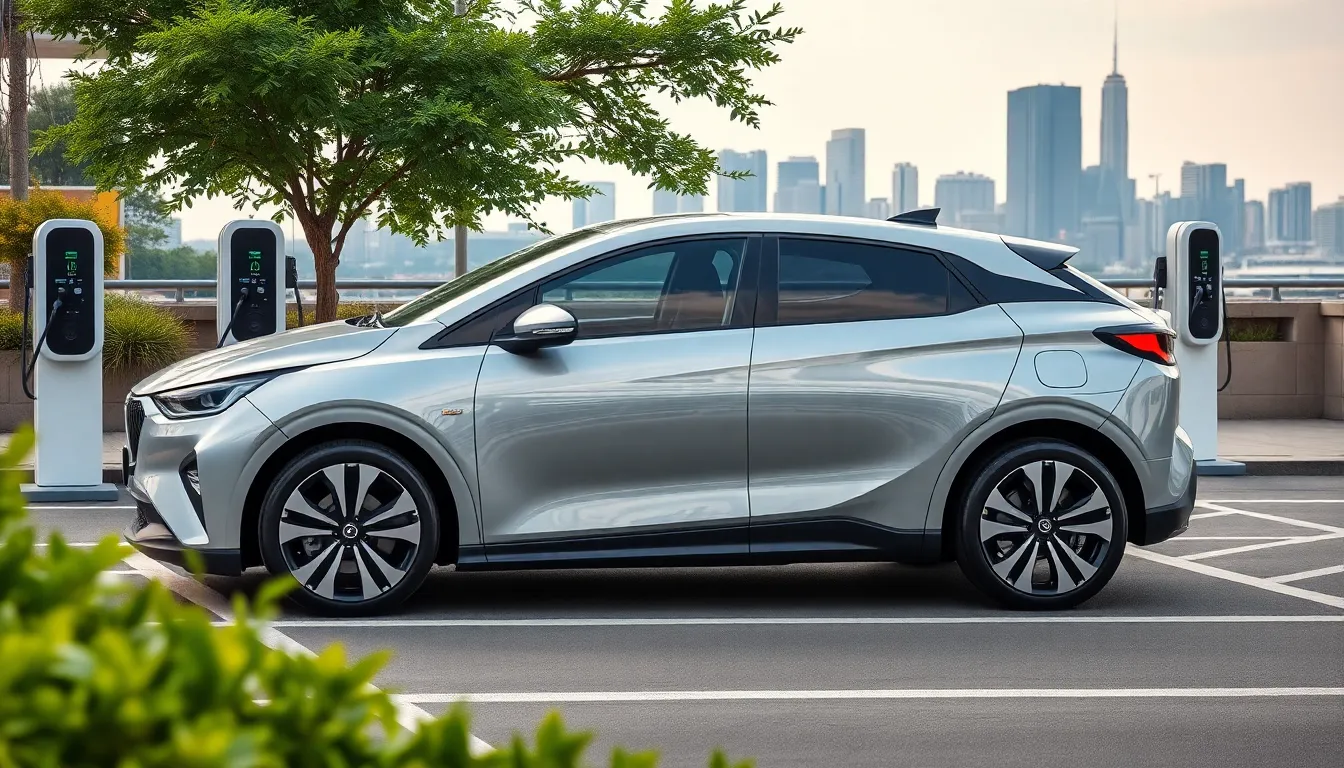
We’re witnessing a revolutionary transformation in hybrid technology that promises to reshape our automotive industry. Advanced innovations are pushing hybrid vehicles beyond their current capabilities to deliver unprecedented efficiency and performance.
Plug-In Hybrid Advancements
Plug-in hybrid technology is evolving rapidly with battery capacities expanding from 8-16 kWh to over 30 kWh in upcoming models. Manufacturers like Toyota and BMW are developing systems that’ll provide 60-80 miles of pure electric range, nearly doubling current capabilities. Fast charging technology is advancing simultaneously, with new plug-in hybrids supporting 50kW DC charging that can replenish batteries in under 30 minutes.
Battery chemistry improvements are extending lifespan to 12-15 years while reducing costs by 40% compared to current generation systems. Solid state batteries entering the market in 2025-2026 will offer higher energy density and faster charging speeds. Vehicle to grid technology is becoming standard, allowing plug-in hybrids to power homes during outages or sell electricity back to utilities during peak demand periods.
Smart charging systems are integrating with home energy management, automatically scheduling charging during off-peak hours when electricity rates are lowest. Wireless charging pads are being tested for residential installations, eliminating the need to plug in cables. Predictive energy management systems will learn driving patterns to optimize battery usage throughout daily commutes.
Integration with Electric Vehicles
Hybrid and electric vehicle technologies are converging through shared platform architectures that reduce manufacturing costs by 25-30%. Modular battery systems allow manufacturers to offer multiple powertrain options on the same vehicle chassis. Range extender hybrids are bridging the gap, providing electric driving with gasoline backup for longer trips exceeding 300 miles.
Charging infrastructure integration is expanding with hybrids gaining access to high speed DC charging networks previously reserved for pure electric vehicles. Bidirectional charging capabilities let hybrid vehicles serve as mobile power stations for camping, work sites, or emergency situations. Energy management systems coordinate between hybrid and electric fleets to optimize grid stability and renewable energy usage.
Manufacturing synergies are streamlining production lines to build both hybrid and electric variants simultaneously. Component sharing between powertrains reduces inventory costs and improves supplier relationships. Software platforms are unifying across vehicle types, enabling over the air updates that enhance performance and add new features throughout ownership.
Autonomous Driving Features
Autonomous driving systems are leveraging hybrid powertrains for enhanced efficiency during self driving operations. Electric mode operation reduces noise levels essential for sensor accuracy in urban environments. Predictive route planning optimizes powertrain switching between electric and gasoline modes based on traffic patterns and driving conditions.
Level 3 autonomous features are debuting in hybrid vehicles first due to their ability to operate silently in parking situations and residential areas. Machine learning algorithms analyze driving patterns to maximize fuel economy during autonomous operation. Vehicle to vehicle communication enables hybrid fleets to coordinate charging schedules and route planning for optimal energy usage.
Regenerative braking systems are becoming more sophisticated with autonomous control, capturing maximum energy during automated driving scenarios. Sensor fusion technology combines radar, cameras, and lidar systems powered by hybrid electrical systems without impacting fuel economy. Remote monitoring capabilities allow manufacturers to optimize hybrid performance through continuous data analysis from autonomous driving operations.
Conclusion
We’ve explored the compelling advantages that make hybrid cars an increasingly smart choice for today’s drivers. From substantial fuel savings and reduced environmental impact to lower maintenance costs and strong resale values these vehicles offer a practical bridge between traditional and fully electric transportation.
The technology has matured significantly with reliable performance across all driving conditions and weather. With federal tax credits state incentives and ongoing technological improvements the financial case for choosing a hybrid continues to strengthen.
Whether you’re seeking to reduce your carbon footprint save money at the pump or simply enjoy a quieter more efficient driving experience hybrid cars deliver on multiple fronts. As we move toward a more sustainable automotive future hybrids represent a proven accessible solution that’s available today.
Frequently Asked Questions
What is a hybrid car and how does it work?
A hybrid car combines an internal combustion engine with one or more electric motors to improve fuel efficiency and reduce emissions. The electric motor assists during acceleration and can operate independently at low speeds, while the battery stores energy from regenerative braking. This dual-power system automatically switches between or combines both power sources for optimal efficiency.
What are the main types of hybrid systems available?
There are four main types: Series hybrids use the gasoline engine only to generate electricity; parallel hybrids allow both engines to power the wheels; plug-in hybrids have larger batteries that charge externally; and mild hybrids use smaller electric motors to assist the gasoline engine. Each type offers unique benefits for different driving needs.
How much money can I save with a hybrid car?
Hybrid car owners typically save $800-1,200 annually on fuel costs compared to conventional vehicles. Many hybrid models achieve 40-50 miles per gallon in city driving. Additionally, you may benefit from federal tax credits, state incentives, extended oil change intervals, and potential insurance discounts, making hybrids a smart long-term investment.
Are hybrid cars reliable in cold weather?
Yes, hybrid cars perform reliably in cold weather conditions. While battery efficiency may slightly decrease in extreme cold, hybrids maintain their efficiency advantage over conventional vehicles even in winter. Modern hybrid systems are designed to operate effectively across various temperature ranges, ensuring consistent performance year-round.
How long do hybrid car batteries last?
Hybrid car batteries typically last 8-10 years or 100,000-150,000 miles under normal driving conditions. Battery replacement costs have decreased significantly due to technological advancements. Most manufacturers offer warranties of 8-10 years on hybrid battery systems, and many batteries continue functioning well beyond the warranty period.
What are the environmental benefits of hybrid cars?
Hybrid cars produce 25-40% lower emissions than conventional vehicles, especially in urban driving conditions. They significantly reduce carbon footprint and comply with strict environmental standards through advanced emission control systems. Major automakers also have established battery recycling programs that recover valuable materials and promote environmental sustainability.
Which hybrid car models are most popular?
The Toyota Prius leads as the best-selling hybrid worldwide, known for exceptional fuel economy. Other popular models include the Toyota Camry Hybrid for comfort and efficiency, Honda Accord Hybrid for performance, Honda Insight as an affordable entry point, and Ford Fusion and Escape Hybrids for reliability and value.
Do hybrid cars require special maintenance?
Hybrid cars actually require less maintenance than conventional vehicles. They feature longer oil change intervals, reduced brake wear due to regenerative braking, and fewer moving parts in the electric motor system. However, they should be serviced by technicians trained in hybrid technology for optimal performance and safety.
How do hybrid cars perform compared to traditional vehicles?
Hybrid cars offer enhanced performance through electric motor assistance, providing instant torque and smoother acceleration. They deliver significantly better fuel economy, especially in stop-and-go traffic, while maintaining comparable comfort and driving experience. The electric motor also provides a quieter driving experience at low speeds.
What does the future hold for hybrid car technology?
The future of hybrid technology includes advancements in plug-in hybrids with increased battery capacity and faster charging. Integration with autonomous driving features will enhance efficiency and performance. As hybrid and electric vehicle technologies converge, expect continued cost reductions, improved manufacturing efficiencies, and more sophisticated energy management systems.

















